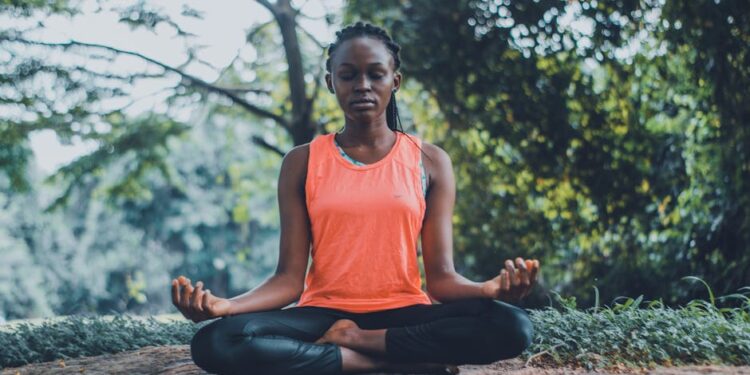Unlocking Inner Peace: How Vipassana Meditation Transforms Your Life
Imagine standing in the eye of a storm—chaos swirls around you, yet you remain calm, centered, and unaffected. Wouldn’t that be powerful? This vision can become a reality through the practice of Vipassana meditation, a transformative method that has been helping countless people discover profound peace and clarity for over 2,500 years.
Understanding Vipassana Meditation
Vipassana, which means ‘to see things as they really are’, is one of India’s most ancient techniques of meditation. It was taught as a universal remedy for universal ills, i.e., an Art of Living. The practice involves a deep interconnection between mind and body, which is accomplished through disciplined attention to physical sensations.
Core Principles of Vipassana
The core practice of Vipassana is observation. You start by concentrating on your natural breathing to calm the mind and achieve a state of concentration. The next step is to systematically scan your body and observe sensations without attachment or aversion, understanding their impermanent nature.
The Benefits of Regular Vipassana Practice
Engaging in Vipassana meditation regularly can usher a series of life-altering benefits that contribute not just to tranquility but also to an enriched life experience.
1. Enhanced Self-Awareness
As you practice observing your thoughts and feelings without judgment, you start to understand the root causes of your reactions. This awareness fosters deep personal insight and helps cultivate a peaceful mind.
2. Emotional Resilience
Learning to remain equanimous in the face of pleasant and unpleasant sensations helps build resilience against stressful situations. This emotional stability is crucial in dealing with life’s ups and downs more effectively.
3. Improved Concentration and Focus
Vipassana sharpens your concentration because the practice requires you to focus intensely on your inner self. This enhanced focus can translate into better performance at school, work, and in daily activities.
4. Health Benefits
Many practitioners report improvements in physical and mental health. The stress-reduction aspect of Vipassana can decrease blood pressure and enhance immune function, further contributing to overall wellbeing.
Getting Started with Vipassana
Beginning a new meditation practice can feel daunting, especially one as introspective and disciplined as Vipassana. However, with the right guidance and approach, anyone can start this journey.
Finding the Right Venue
A great way to start is by attending a 10-day residential course, widely considered the most effective way to learn Vipassana. These courses are offered around the world at dedicated centers and are conducted in a silent retreat format to enhance the learning and experience.
Daily Practice
Post-course, it’s vital to maintain a daily meditation practice. Starting with shorter periods and gradually increasing to one or two hours a day can help integrate Vipassana into your life effectively.
Transforming Lives through Practice
As with acquiring any new skill, the benefits of Vipassana are cumulative and grow with practice. To give you a clearer idea, here are a few testimonials from individuals who have experienced significant transformations.
Lisa’s Story
Lisa, a software developer, found that Vipassana helped her manage work-related stress and improved her focus, leading to better job performance and satisfaction. “Vipassana taught me to observe my stress without getting overwhelmed by it,” she says.
Mark’s Journey
Mark, a college student, struggled with anxiety and depression. After his 10-day course, he felt a heightened sense of peace and perspective. “It’s like I’ve found a reset button for when life gets too chaotic,” he shares.
Embracing a Journey of Inner Peace
Embarking on the path of Vipassana meditation is more than just adopting a routine; it is a commitment to turning inward and fostering profound personal growth. While the journey is deeply personal and unique, the destination of inner peace and heightened awareness remains common.
Whether you’re seeking relief from anxiety, longing for deeper spiritual connections, or simply curious about this ancient practice, Vipassana can offer a valuable perspective. By setting realistic goals, being patient with yourself, and persistently practicing, you can unlock the door to transformation and inner serenity.
FAQs About Vipassana Meditation
- How much does it cost to attend a Vipassana course? – Most Vipassana courses are run on a donation basis. You pay what you feel the technique is worth to you and what you can afford, after completing the course.
- Is Vipassana religious? – Vipassana is not a religious practice; it is a technique that people of any or no religious background can practice.
- Can I learn Vipassana by myself? – While it’s recommended to learn under a qualified teacher initially, especially in a course setting, you can practice Vipassana on your own once you’ve learned the basic technique.
Remember, the journey towards inner peace begins with a single moment of awareness. Allow Vipassana to guide you to this moment, again and again, transforming your life in ways you might have never imagined possible.



































































